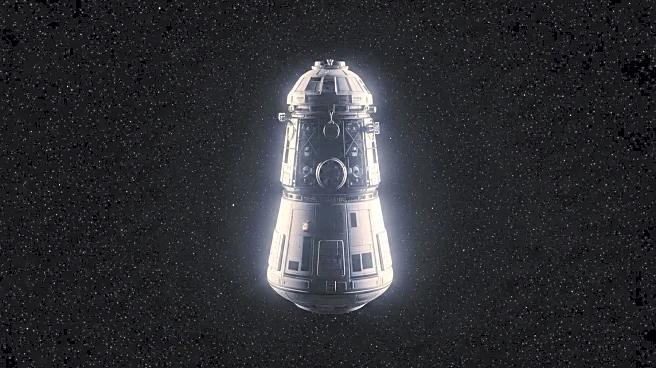What's Happening?
NASA's Artemis II mission, scheduled for 2026, will see astronauts Reid Wiseman, Victor Glover, Christina Koch, and Canadian astronaut Jeremy Hansen conduct extensive human research studies during their 10-day mission around the Moon. The mission aims to gather data on how deep space travel affects the human body, mind, and behavior. Key studies include Immune Biomarkers, which examines immune system responses, and ARCHeR, which evaluates crew performance and dynamics. The mission will also test radiation shielding and study the effects of space radiation on human cells using organ-on-a-chip technology.
Why It's Important?
The Artemis II mission is crucial for advancing human space exploration beyond low Earth orbit, providing insights necessary for future missions to Mars and other deep space destinations. The research conducted will help NASA understand the physiological and psychological challenges of long-duration space travel, enabling the development of strategies to ensure astronaut health and safety. The mission's findings will contribute to the design of future spacecraft and habitats, addressing issues such as radiation exposure and confined living conditions, which are critical for the success of extended missions.
What's Next?
Following the Artemis II mission, NASA will analyze the collected data to refine its human spaceflight strategies. The insights gained will inform the planning of subsequent Artemis missions, including potential lunar landings and Mars expeditions. NASA will continue to collaborate with international partners and commercial entities to enhance its research capabilities and develop technologies that support sustainable human presence in space. The mission's success will be a stepping stone towards achieving NASA's long-term goal of establishing a permanent human presence on the Moon and preparing for human exploration of Mars.











